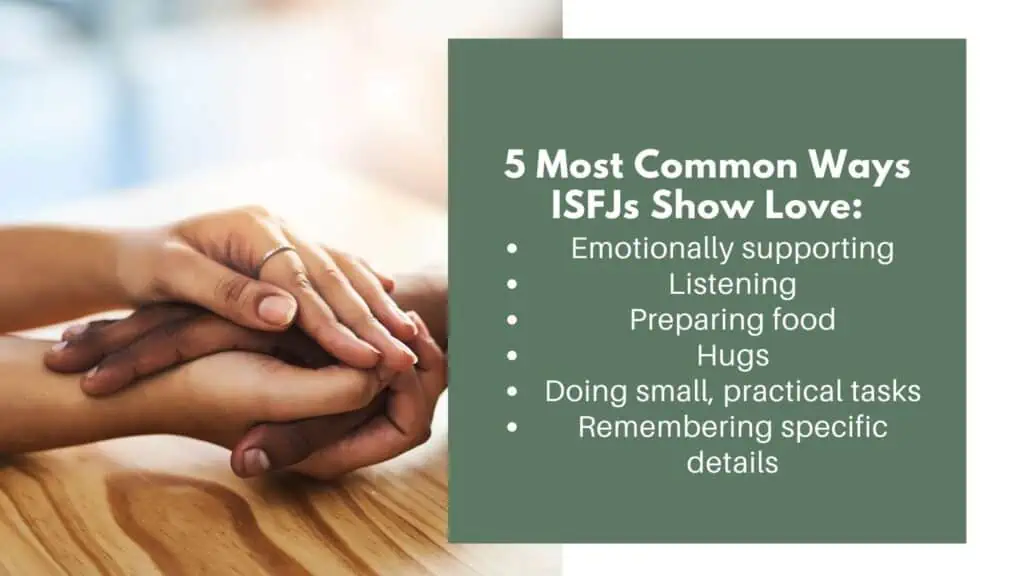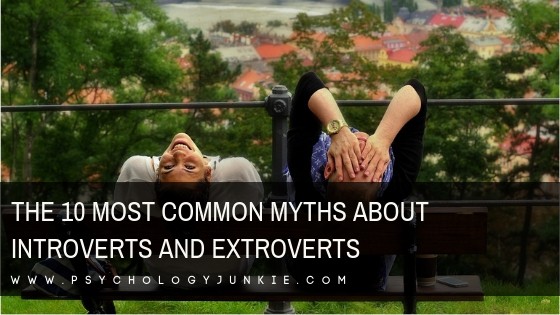The Quiet Burnout of the ISFJ: When No One Notices All You Do
If I had a dollar for every ISFJ who came to me in a type clarification session feeling unappreciated, emotionally exhausted, and quietly resentful, I could buy myself a small island and a nice nap. Over and over, I meet ISFJs who are running on fumes because they’ve spent the last year (or decade) holding everything together for the people in their lives, and nobody seems to notice. Their hard work blends into the background, like furniture—only noticed when something goes wrong.
I once had a client—I’ll call her “Anna”—who came to me unsure of her type, but very sure of one thing: she felt invisible. She was the first to offer help, the last to ask for it. She planned every birthday, remembered every important date, folded her kids’ laundry a particular way so the socks didn’t stretch out. When her husband forgot their anniversary for the second year in a row, she didn’t yell or cry. She just smiled, nodded, and later—alone—wondered, What’s the point of caring this much if nobody notices?

That sentence—“What’s the point of caring this much?”—stuck with me. Because it’s not that ISFJs want constant praise or a parade in their honor. It’s that they need reciprocity, or at the very least, to feel seen. Their dominant function, Introverted Sensing (Si), keeps a detailed inner ledger of what’s been done—who helped, who forgot, who said thank you, and who didn’t. And their auxiliary function, Extraverted Feeling (Fe), quietly tugs at them to keep showing up anyway, to keep maintaining harmony, to keep tending to everyone else’s emotional well-being even when their own is bone-dry.
This article is for the ISFJs who feel like ghosts in their own lives—present, dependable, essential, and yet… unseen. Let’s talk about why this happens, how your cognitive wiring plays into it, and what you can actually do about it.
So how do you know if this is happening to you? Sometimes the ISFJ way of coping is so quiet, so automatic, that you don’t even realize you’re burning out until you’re curled up in bed at 3 PM wondering why you feel like sobbing over an empty dishwasher.
Here are a few questions to ask yourself:
- Do you feel guilty saying no, even when you’re already stretched too thin?
- Do you do things for others that go completely unnoticed—but you’d feel selfish not doing them?
- Do you often feel like the emotional glue in your relationships, but nobody checks in on you?
- Have you ever caught yourself mentally tallying all the things you’ve done for someone… and then feeling bitter when they forget your birthday?
- Do you keep the peace, smooth things over, and then wonder why you feel disconnected or resentful afterward?
- Do you believe that being helpful and reliable is who you are—but secretly wish someone would say “thank you” once in a while without being prompted?
If you answered “yes” to most of these, there’s a good chance you’re not just tired—you’re running on emotional empty, stuck in a loop of overgiving and under-recognizing your own worth.
And I’m so sorry. As a lifelong people-pleaser in many ways, I know just how isolating it can feel. I’ve had many of those “I just want to scream and cry into a pillow” moments. That’s one of the reasons why I care so much about writing this article.
Every time I sit across from an ISFJ and hear this story I just want to reach out and take some of the burden away from them. To assure them that they don’t have to stay trapped in this cycle forever. They deserve so much more.
Let’s dig into why this happens, how your mind works,, and what it would look like to start showing up for yourself the way you show up for everyone else.
If this article already has you nodding along, I want you to know—you’re not alone, and you’re not imagining things. I’ve spent years working with ISFJs one-on-one and writing in-depth guides to help people like you understand your wiring. If you want to go deeper, my ISFJ eBook is packed with real-world insights, emotional support, and practical strategies for living with more clarity and self-worth. You can also work with me directly through type clarification or coaching sessions—sometimes just talking things through with someone who gets it can make a world of difference.
How Your Personality Type (Accidentally) Sets You Up to Be Taken for Granted
If you’re an ISFJ, you probably spend most of your time making other people’s lives better—quietly, behind the scenes, without needing (or wanting) a parade. You anticipate needs, remember the little things, keep the routines humming, and offer emotional support like it’s your job. You’re the one who notices when someone’s favorite mug is missing from the shelf and carefully puts it back.
But here’s the problem: the more consistent and kind you are, the more people may end up taking it for granted.
ISFJs rely on a mental process called Introverted Sensing, or Si for short. This part of your personality is deeply focused on the past: on what’s worked, what matters, what’s meaningful. It remembers the time your friend mentioned hating lemon in their tea—so you never offer it again. It notices that your child’s mood shifts every Tuesday afternoon, so you prep their favorite snack without them asking. You track patterns, store them, and use them to show love in practical, grounded ways.
But Si doesn’t usually announce itself. It’s quiet. Steady. Loyal. It doesn’t say, “Look at what I did!” It just keeps doing it. Which means… people don’t always notice how much you’re managing. They just get used to it. Your reliability becomes the wallpaper of their life.
Now pair that with your second core process: Extraverted Feeling, or Fe. This is your emotional radar. It scans the room for people’s needs, moods, and social cues. Fe says, “Let’s keep the peace. Let’s make sure everyone’s okay. Let’s bring harmony to this mess.”
So not only do you remember what people like, you feel responsible for how they feel.
You see someone frowning? You want to fix it. You sense tension in the room? You soften your tone. You’ve just finished a 12-hour day and someone hints that they’re overwhelmed? You step in anyway. Because that’s what you do.
And the more you do this, the more people come to expect it. Not out of malice—but because you’ve trained them to believe you’ve always got it handled.
But here’s the hard truth: Fe needs emotional connection to thrive. It needs to know your efforts matter. When your kindness is ignored, when people take you for granted, when no one asks how you are doing? That disconnect starts to hurt. And your brain, which has been running like a caregiving machine, starts to sputter.
You may begin to withdraw, feel bitter, or start tallying all the ways others have let you down. You may think:
- No one notices how hard I’m trying.
- Why am I the only one who cares?
- I don’t even know who I am anymore.
And just when you need support the most, your instinct is to go quiet. To put on a brave face. To pretend everything’s fine—while hoping someone will see through it.
This is how ISFJs end up stuck: quietly overworked, quietly resentful, and quietly heartbroken.
But you don’t have to stay there.
Let’s talk about how to break that cycle—without giving up the parts of yourself that make you such a caring, loyal, and beautiful human.
How to Stop Feeling Invisible (Without Becoming a Jerk About It)
Let’s be honest: You don’t want to become one of those people who stomps around demanding attention and making everything about them. That’s not your style. But neither is being a doormat. And right now, you might be living closer to doormat than you’d like to admit.
Here’s how to start shifting things—gently, but firmly.
1. Start noticing your own needs before everyone else’s.
I know, it feels wrong. Selfish, even. But it’s not. It’s necessary.
Before you offer help, pause and ask: Do I actually have the energy for this?
Would saying yes make me feel resentful later?
If the answer is yes, take that seriously. This is you learning to respect yourself—the same way you respect everyone else.
2. Say “no” like a warm but firm hug.
“No” doesn’t have to sound cold or cruel. It can sound like:
- “I really want to help, but I’m at capacity right now.”
- “I care about you, but I need to take care of myself first today.”
- “That’s something I can’t take on—but I believe you’ll figure it out.”
Boundaries don’t make you less kind. They make your kindness more sustainable.
3. Stop assuming people know what you do. (They don’t.)
You keep the emotional and logistical systems of your world running, but most people only notice systems when they fail. So if you’re always quietly fixing things before they break, they may have no idea how much you’re doing.
Start naming your efforts—not to brag, but to help others connect the dots:
- “I spent a few hours organizing the bills today so things wouldn’t get behind.”
- “I’ve been making sure your lunches are packed every morning so you don’t have to rush.”
- “I realized the house has been feeling chaotic, so I spent the weekend deep cleaning.”
It might feel awkward at first, but this is how you train people to value your work.
4. Ask for appreciation. (Really.)
This is the part where a lot of ISFJs freeze up. “I shouldn’t have to ask. They should just know.”
But people don’t live in your brain. They don’t always connect your efforts to your need for emotional support.
Try this:
- “When I go out of my way to help, it means a lot when it’s acknowledged.”
- “I know I’m reliable, but I still need to feel seen sometimes.”
- “Even a simple thank-you helps me feel like I matter.”
You’re not being needy. You’re being honest.
5. Give from overflow, not emptiness.
You are not a machine. You’re a person. And if you keep giving when your emotional gas tank is empty, you’re going to sputter out—fast.
So fill your own tank. Take time for things that you love, not just things that are “useful.” That could mean reading alone, creating something beautiful, taking a walk, or just sitting in blessed, uninterrupted silence. Make space for joy that isn’t tied to anyone else’s needs.
You deserve it. No permission slip required.
If you’ve ever felt like the way you show up in the world doesn’t match the way people treat you, there’s a reason—and it’s rooted in how your personality type processes loyalty, emotion, and self-worth. I cover this in a lot more depth in my ISFJ eBook, which was designed to help you understand your gifts, your blind spots, and how to find your voice without losing your warmth. And if you want personalized support, I offer one-on-one sessions where we can explore your type, your specific life challenges, and how to reclaim your energy.
Why Change Feels So Uncomfortable (Blame That Inferior Ne)
So let’s say you do set a boundary. You do say no. You finally speak up and say, “Hey, I need a little appreciation over here.”
And then…
Your brain starts spinning.
“Was that too much?”
“What if they think I’m selfish?”
“What if I just made everything weird?”
“What if they leave?”
“What if I am overreacting?”
Welcome to the world of inferior Ne—the sneaky little voice in the back of your mind that throws out worst-case scenarios like it’s hosting a doomsday game show.
Ne (Extraverted Intuition) is the function that ISFJs feel the most uncomfortable with. It’s meant to give you a little glimpse of what could be—possibilities, connections, new ways of thinking. But when it’s in the “inferior” slot, it doesn’t come out as hopeful brainstorming. It comes out as anxious, spinning fear loops.
Instead of expanding your vision, it catastrophizes it.
- You set a boundary—and your brain immediately panics about destroying a relationship.
- You ask for appreciation—and your brain starts crafting ten different ways they’re secretly judging you.
- You take time for yourself—and suddenly you’re imagining people calling you lazy, selfish, or cold.
It’s like your mind hits the “what-if” button and can’t stop.
And because this isn’t your strong suit, you don’t always realize that Ne is messing with you. It just feels true. Like your gut is telling you something dangerous is happening when really? You’re just learning to take up space.
And that’s unfamiliar. Not bad—just unfamiliar.
Here’s the Reframe: You’re Not Creating Drama. You’re Creating Balance.
If you’ve spent your whole life giving without asking, speaking up will feel dramatic. But that doesn’t mean it is.
It means your nervous system isn’t used to being on the receiving end.
So when that flood of self-doubt shows up, name it: “This is my inferior Ne trying to scare me into staying small.”
Take a breath. Remind yourself: “I’m not being selfish—I’m being fair.”
Because you’re not asking for a spotlight. You’re asking to not be invisible.
And that’s more than reasonable. That’s healthy.
You Deserve to Be Seen
If you’re still reading this, odds are you’re the kind of person who shows up—every time, no matter what. You bring the snacks. You remember the birthdays. You make sure the towels are clean and the emotions in the room are even cleaner. You do the things that keep life from falling apart, and you rarely ask for credit.
But you matter, too.
You’re not just the caretaker, the behind-the-scenes fixer, the “reliable one.” You’re a whole person—with needs, with limits, with feelings that deserve just as much space as anyone else’s.
So this is your reminder:
You don’t have to earn your place by being useful.
You don’t have to stay small to keep the peace.
You don’t have to wait until you’re burned out to ask for something back.
Speak up. Take up space. Let people know what it costs to love them this well.
And if they can’t handle that? That says more about them than it ever did about you.
You are not too much.
You are not too needy.
You are not ungrateful for wanting more.
You’re an ISFJ—and you’ve spent enough time being invisible.
Now it’s time to step into the light.
I wrote an entire eBook just for ISFJs, because I’ve seen too many people like you running themselves ragged for others and forgetting their own worth in the process. It’s full of insights into how your mind works, how to set boundaries that don’t feel like betrayals, and how to feel good about taking up space.
And if you’re feeling lost, confused, or just exhausted—I also offer coaching sessions where we walk through this together. Sometimes the hardest part is feeling like no one sees you. I promise I will.











